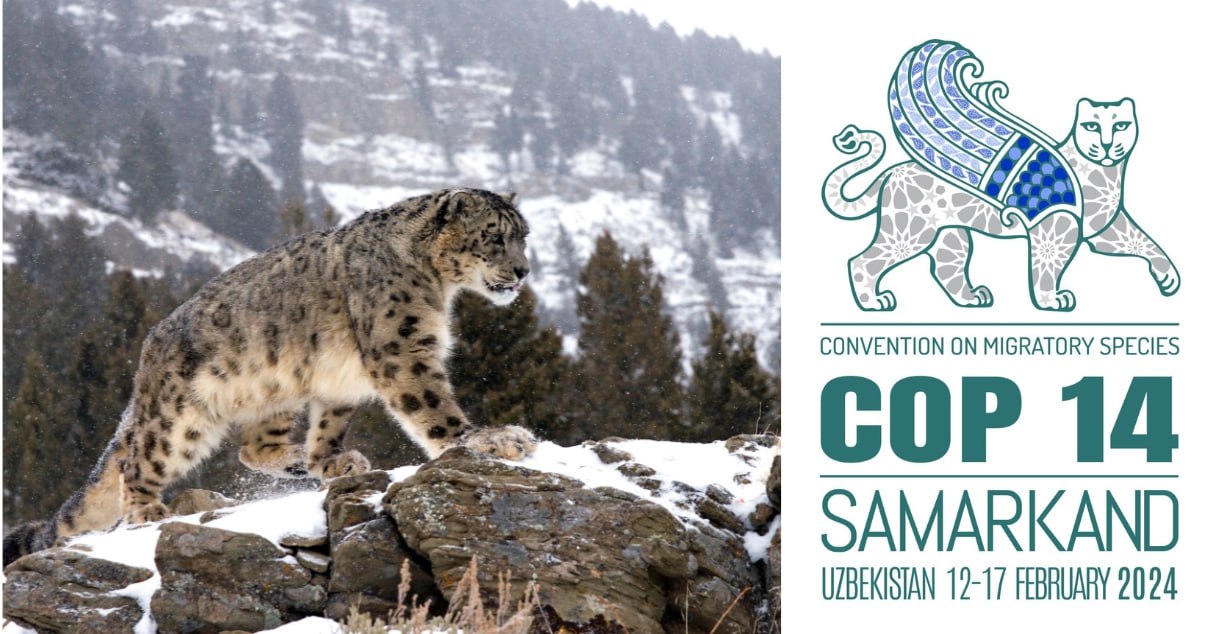
From February 12 to 17, 2024, the historic city of Samarkand in Uzbekistan will host the 14th Meeting of the Conference of the Parties to the Convention on the Conservation of Migratory Species of Wild Animals (CMS COP14).
CMS COP14 is a high-level international meeting where governments from different countries, scientists and interested parties will come together to coordinate strategies for the conservation of migratory species and their habitats.
In August of this year, the Government of Uzbekistan and the CMS Secretariat approved the official slogan and logo for the event, featuring a winged snow leopard adorned with a pattern reminiscent of the famous lapis lazuli tiles of Central Asian monuments.
For reference: The snow leopard is one of the key species of biodiversity in Uzbekistan, whose range extends across 12 countries. The mighty and elusive big cat is also a legendary symbol of Samarkand, widely spread throughout the country, from the magnificent entrance to the Sher-Dor Madrasah to Uzbekistan's national banknotes.
The UN conference will be held under the slogan "Nature Knows No Borders," which, along with the event's logo, is a reminder that the migration of species does not adhere to political borders and that their survival depends on international cooperation and transboundary efforts to preserve biodiversity.
The unveiling of the logo and slogan sets the stage for CMS COP14, an important international meeting where representatives from different governments, scientists and interested parties will come together to coordinate strategies for the conservation of migratory species and their habitats.
The conference will be the first global gathering on biodiversity issues since the adoption of the Kunming-Montreal Global Biodiversity Framework (GBF) in 2022. A wide range of important conservation priorities and new initiatives will be discussed at the conference, many of which will support the implementation of the GBF.
The triennial international meeting will address issues related to habitat conservation and restoration, as well as threats to species such as overexploitation, habitat loss and fragmentation, pollution and climate change. It will also provide a unique opportunity to launch new major reports and guidelines, including the first-ever report on "State of the World’s Migratory Species," new global guidelines on light pollution, and best practices for linear infrastructure to minimize impact on migratory species.
Events and meetings related to COP14, such as the 54th Meeting of the CMS Standing Committee, the High-Level Segment, and the Migratory Species Champion Night, will also take place in the same location on February 11.











